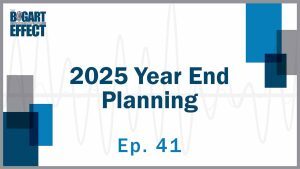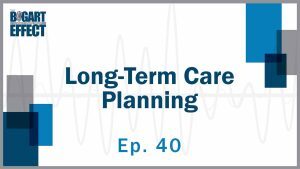Key Takeaways
- There are five main types of power of attorney: durable, nondurable, springing, general, financial, and medical POA.
- A power of attorney expires immediately upon death and agents must stop acting on the principal’s behalf.
- Probate is required to transfer assets whether or not a will exists, with executors or administrators taking over.
- Continuing POA authority after death is illegal and can result in criminal charges for abuse or theft.
- Inheritance hijacking occurs when agents unlawfully transfer assets to themselves before or after death.
- Comprehensive estate planning prevents complications by establishing clear authority transitions.
A power of attorney (POA) gives someone else the legal authority to manage your affairs. In general, POA are designed to kick in when the principal is unable to handle affairs themselves-for example, if the principal is incapacitated or living abroad and unable to handle affairs locally. This authority does not generally extend past death. If a loved one named you their POA, it means they trusted you to handle their affairs in an emergency. If this loved one trusted you enough for that, they may also have named you as either their estate administrator or executor of their will, both of which activate upon death.
Defining Power of Attorney
A POA is a legal document allowing the person creating it (the principal) to appoint a trusted individual to act on their behalf. The appointee is known as the agent. An agent must understand their duties and roles, as defined by the POA contract. The names and details of these documents may vary by state, but we’ll include summary explanations here to help you better understand how different POA work.
Types of Power of Attorney
There are a variety of POA types available depending on the needs of the principal. POA fall into five distinct categories:
1. Durable and Nondurable Power of Attorney
The agent in a durable POA continues to act on behalf of the principal if the latter becomes incapacitated. A nondurable POA means the agent’s authority ends if the principal becomes incapacitated. This last type isn’t ideal for estate planning.
2. Springing Power of Attorney
A springing POA gives the agent authority to act only when a specified condition is met; for example, they can only work on the principal’s behalf if the principal becomes incapacitated. The springing POA generally has no legal authority.
3. General Power of Attorney
The general POA authorizes the agent to act on behalf of the principal in all situations allowed by local law. The principal can still handle some affairs on their own.
4. Financial Power of Attorney
A financial POA is unique in that it allows the agent to make decisions about the principal’s money and property, such as paying bills, filing taxes, or collecting and managing retirement benefits.
5. A Medical Power of Attorney
Medical POA is a limited type of authority allowing the agent to make decisions for medical care, including treatment, surgery, medication, end-of-life care, and choice of healthcare providers. It’s paramount that the principal’s assets are protected following the expiration of a POA after death. This period can be marked by chaos, but the following sections explain what typically happens.
What Happens to the Power of Attorney After Death if Your Loved One Left a Will?
Your loved one can no longer own property after death, and you can’t act on their behalf when they’re gone. Probate becomes necessary to transfer the assets they leave behind to their living heirs. The will they left behind must be filed with the probate court shortly after their death, especially if they solely held a bank account or other properties. Filing the will with probate officially begins the process of distributing the property to the living beneficiaries. The executor named in the will has the authority to oversee the probate process.
Does Power of Attorney End at Death if There’s No Will?
Your loved one’s property must also undergo the probate process to complete the transfer of ownership unless a will is in place. The difference is that the distribution will be according to state law rather than the decedent’s wishes. The court will appoint an administrator to settle the estate, and you can apply to the court to be designated as the administrator. Your request is likely to be granted if the decedent leaves no surviving spouse or if the surviving spouse and children, who are most likely the beneficiaries, agree to have you as the administrator over the estate. If the beneficiaries disagree with your decisions as the executor regarding the estate, they may challenge you in court.
What Is Abuse of Power of Attorney After Death?
A POA expires automatically upon the death of the principal. As the agent, you must immediately stop acting on behalf of the principal upon their demise. Continuing to act as agent may be considered abuse of POA, which can happen before or after death and is a potential crime in either case. An agent can misuse their authority, for example, to unlawfully move assets from the principal’s name to their own. Such a situation is known as inheritance hijacking. Other beneficiaries may not realize inheritance hijacking has taken place until after the principal passes and they discover assets missing from the estate. Heirs can report disputes regarding the misappropriation of assets in probate courts.
Legal Remedies for Abuse of Power of Attorney After Death
An agent has a legal obligation to be loyal and trustworthy. They might be considered to have committed crimes like embezzlement, fraud, and theft if they altered the decedent’s estate for their benefit. Suspected criminal acts can make the district attorney pursue criminal charges against an agent who steals from an estate. An heir or beneficiary to a decedent may file a civil petition to have the misappropriated assets returned to the estate. Some civil law repercussions for misappropriation of assets include stiff fines and jail sentences for inheritance hijacking.
Bogart Wealth Estate Planning Services
The issues around a POA can be complex. Comprehensive estate planning, paired with good communication, can help prevent future issues. Bogart Wealth works closely with lawyers and other professionals to offer comprehensive estate planning support to clients. If you have questions about your current estate plan, or are wondering where to start, contact Bogart Wealth to speak with an expert today.



